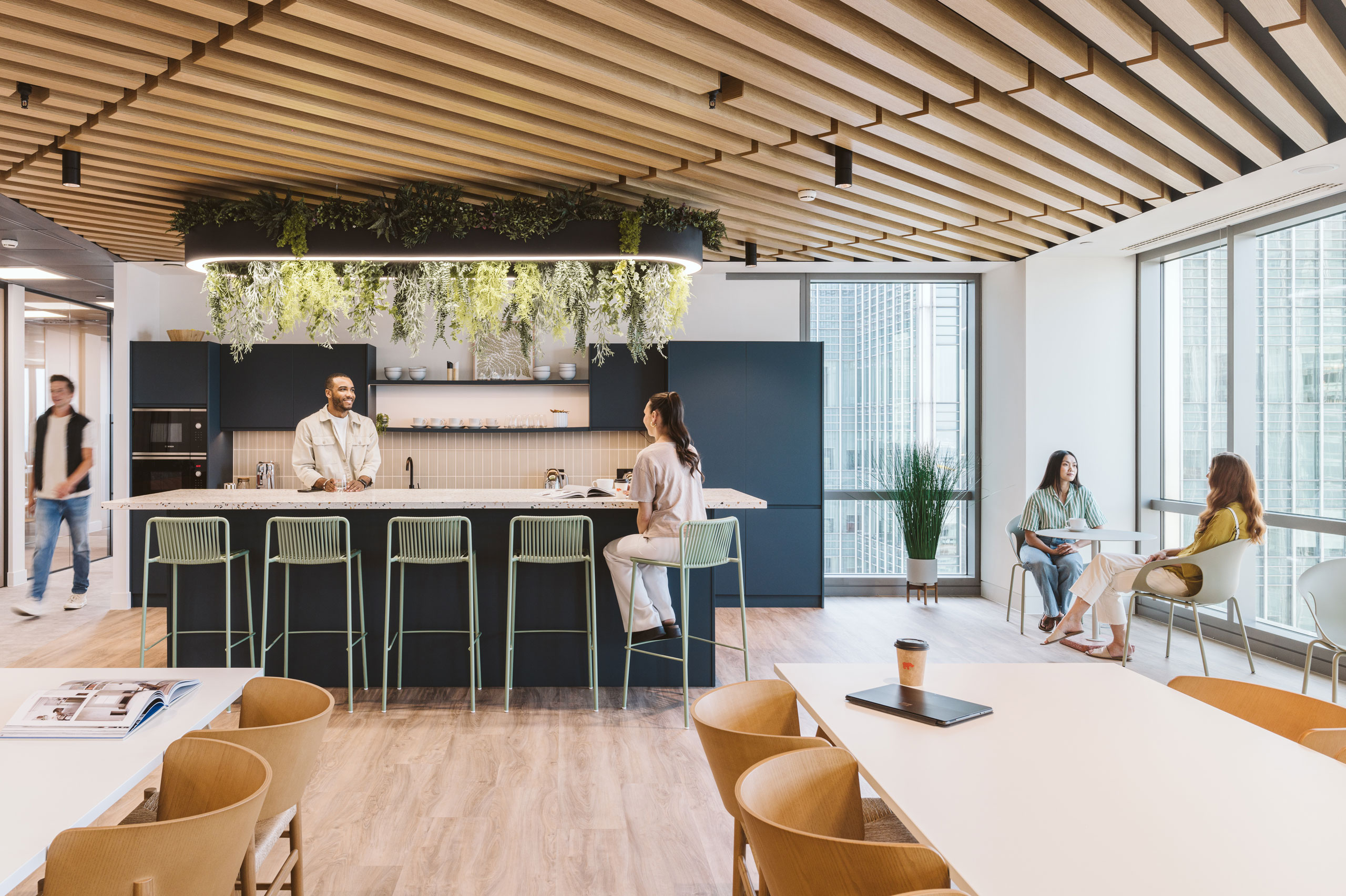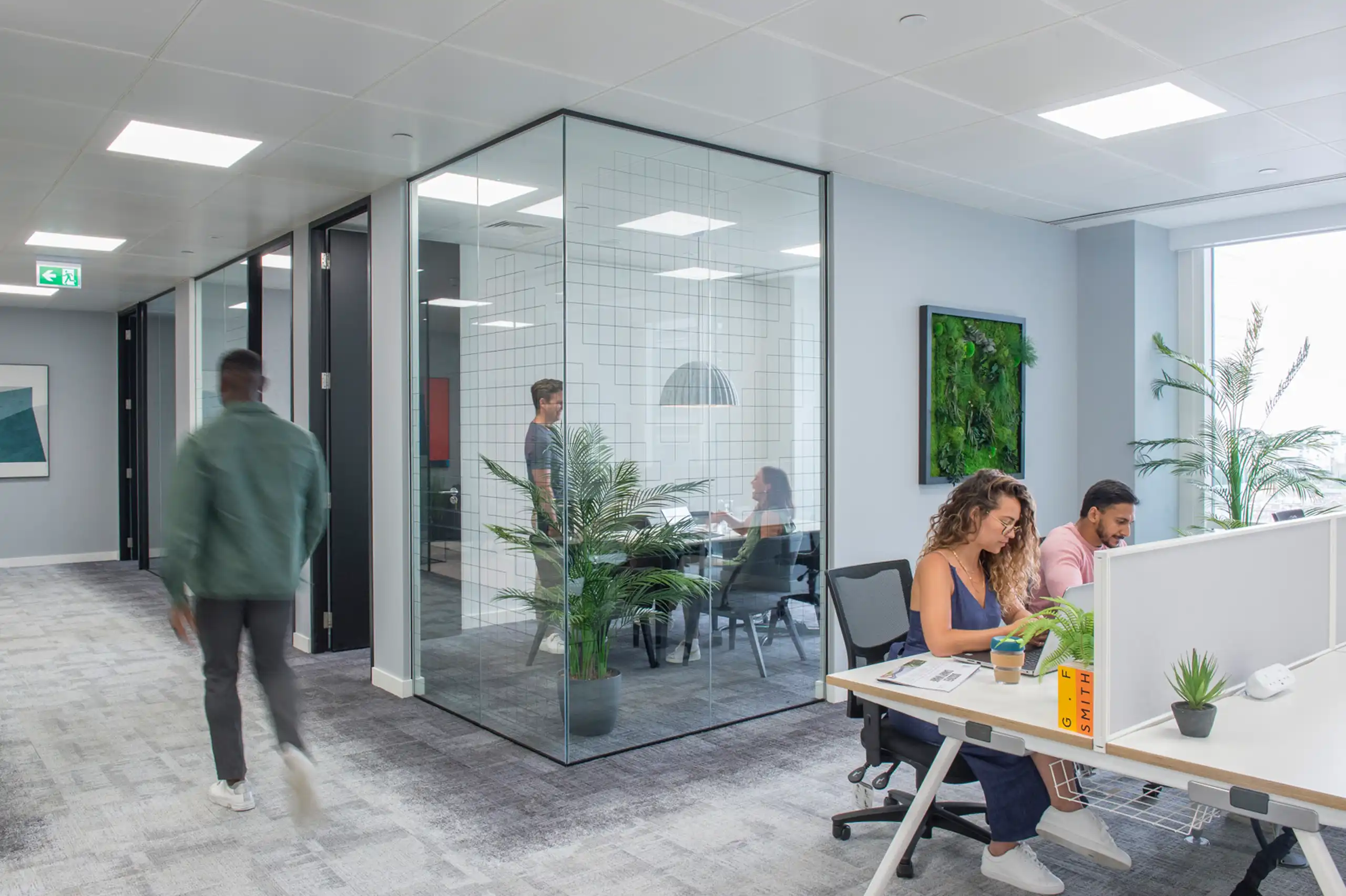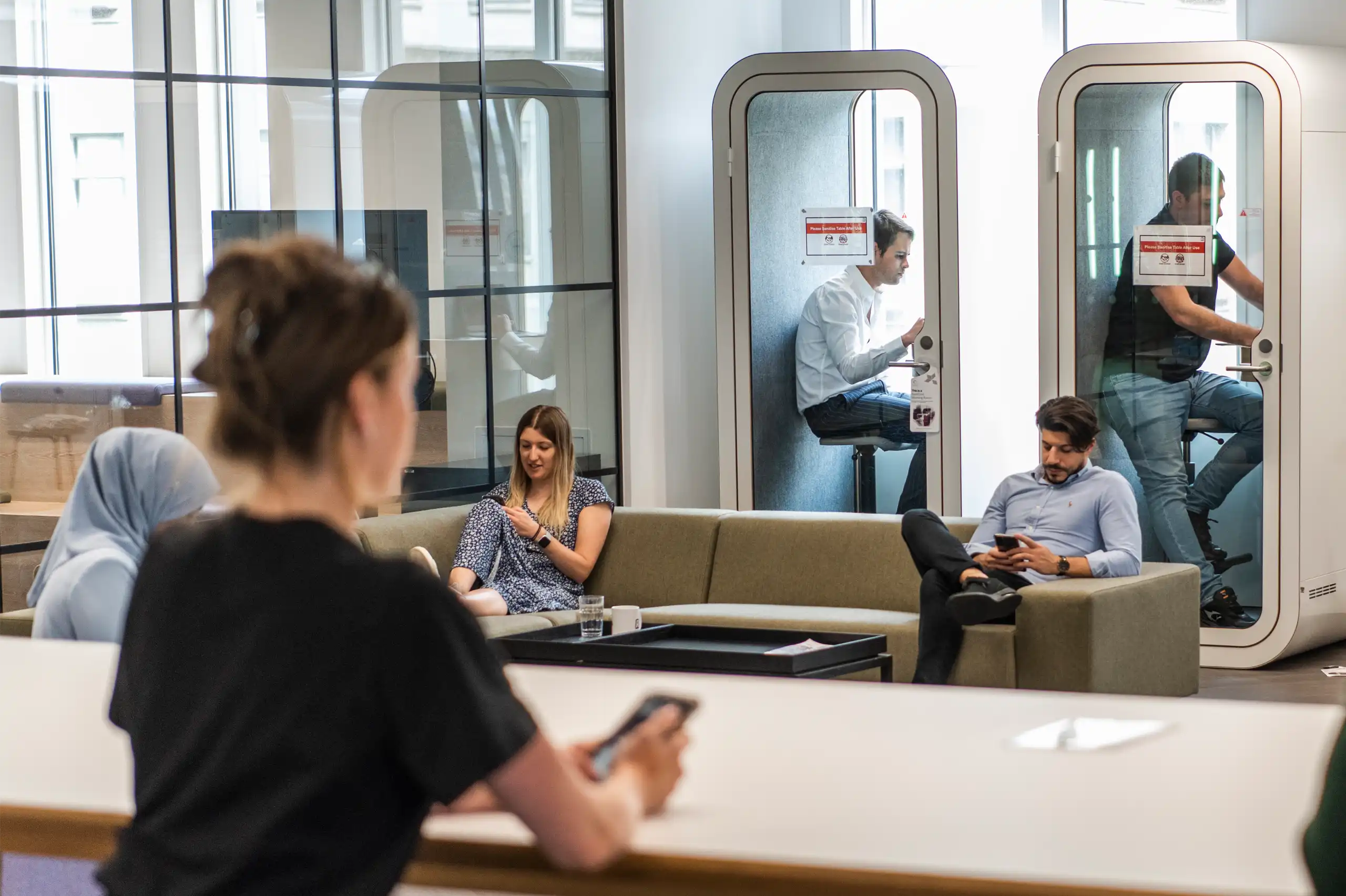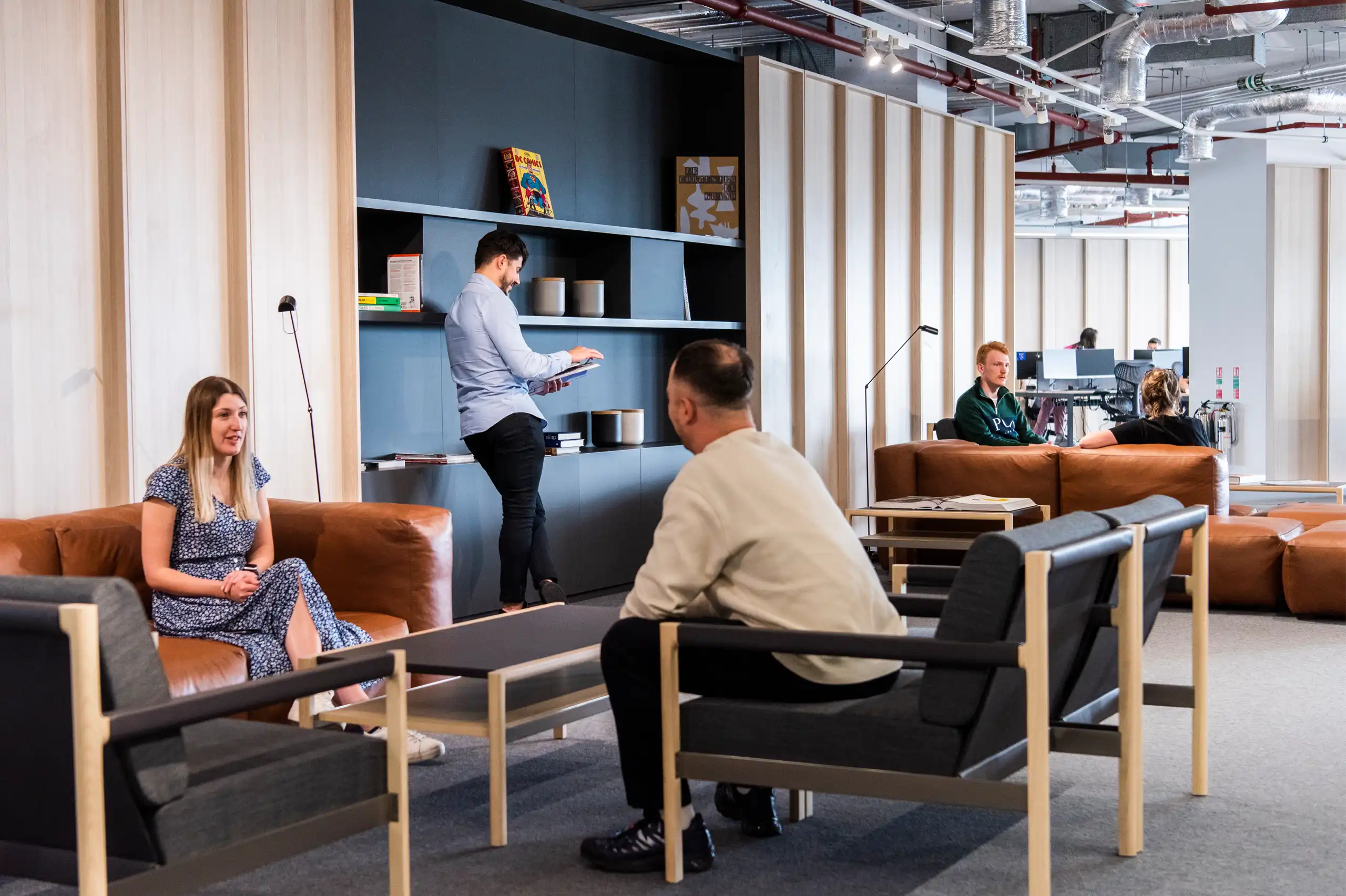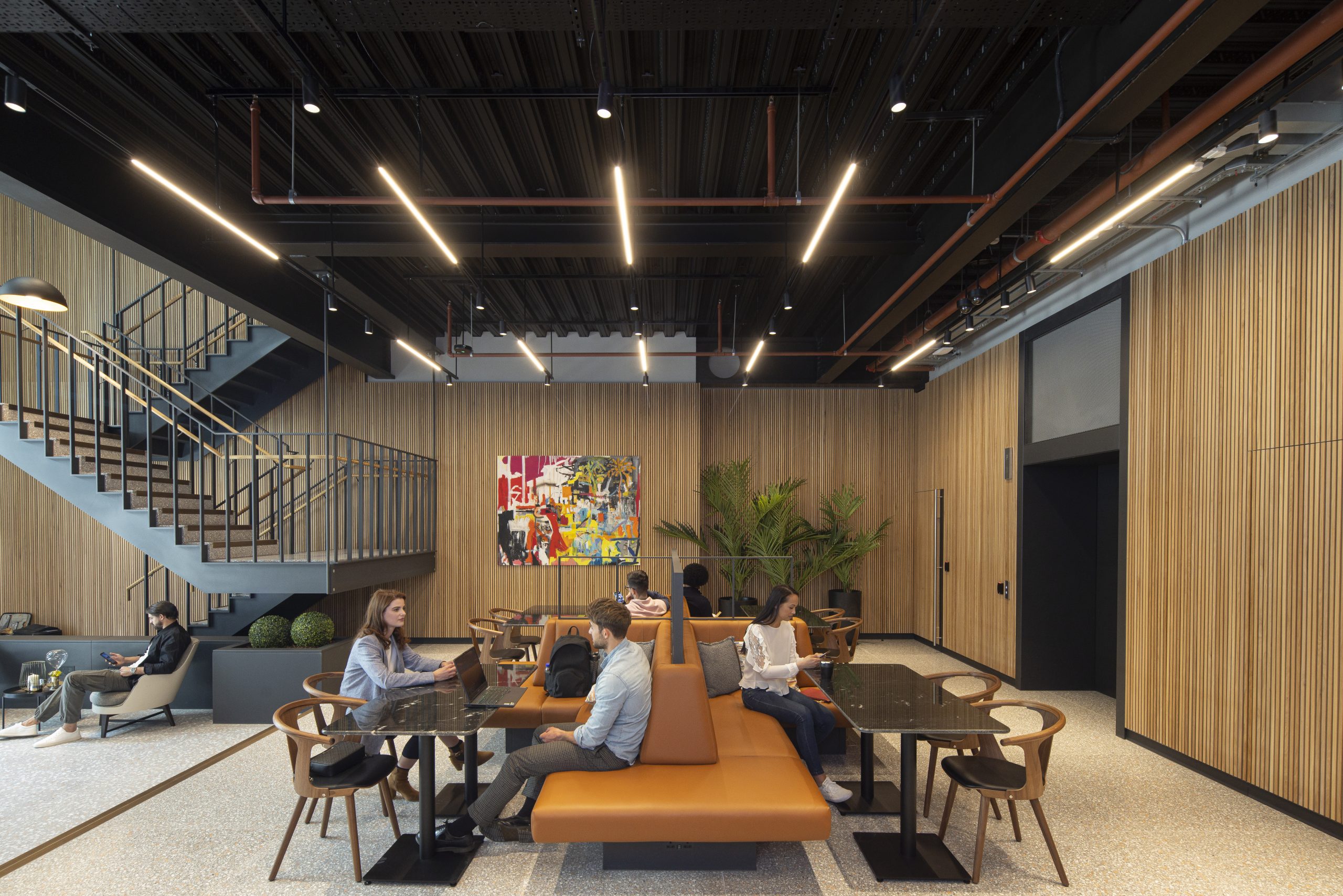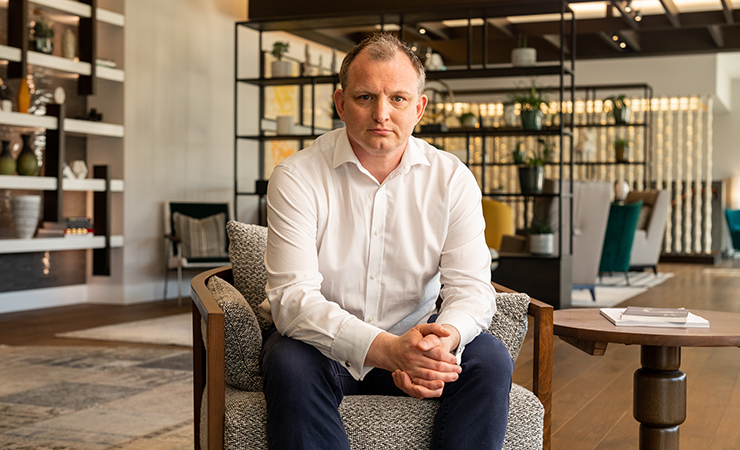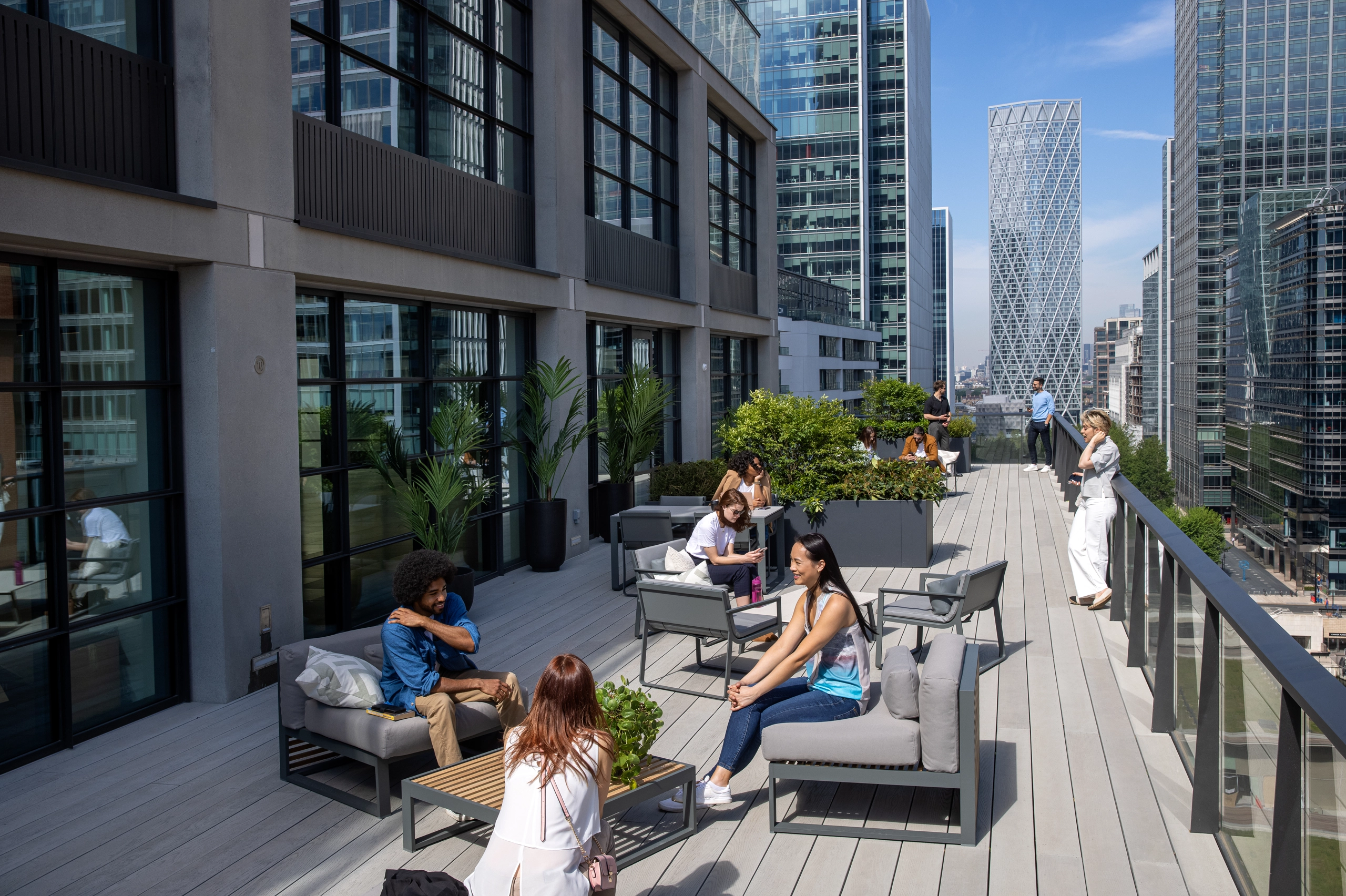
Work-life balance: Canary Wharf’s approach
A healthy work-life balance has been consistently highlighted as one of the top priorities of Millennials and GenZ. Coupled with the ever-increasing options afforded to us in how we work, courtesy of digitisation and connectivity, not to mention general knowledge, that healthy balance is more achievable than ever. The question is, how?
Contrary to what the Pandemic years had many of us thinking, a work-life balance is not simply about more time spent at home. On the contrary, many people find that heading into a destination workplace is an intrinsic part of enjoying their working life. Instead, it’s more about the flexibility and comfort of our work environments. Much of that coveted work-life balance also depends on the infrastructure around the workplace – offering places to shop, eat, exercise, relax in nature, meet friends and enjoy entertainment.
In this article we look at how the culture and infrastructure in Canary Wharf creates a healthy ecosystem that enables a healthy work-life balance for businesses and their employees located on the estate.
 What is a work-life balance?
What is a work-life balance?
Work-life balance has become a hot topic in recent years, but the definition remains somewhat woolly in many instances. In part, that’s because it means slightly different things to different people as individual wellbeing varies from one person to the next.
A report by Deloitte said: “The COVID-19 pandemic spurred more than the Great Resignation among Gen Zs and millennials—it prompted a rethinking of the role work plays in their everyday lives. On the heels of the pandemic, with work pressures continuing to drive high levels of burnout among millennials and Gen Zs, they are reprioritizing the importance of work, with a much stronger focus on achieving better work/life balance.”
Meanwhile, USA Today reported that it meant: “Gen Z and millennials openly demand flexibility – remote work, varying daytime work hours, and more time off to nurture their mental and emotional self.”
Forbes was rather broader in its definition, saying: “The ideal work-life balance for Millennials empowers them to effectively contribute to their organization, while having the resources and flexibility to care for themselves and see to their life’s demands outside of work. It is essential that employers develop a benefits program that addresses what is most important to Millennials – flexibility, family, health, and sense of purpose.”
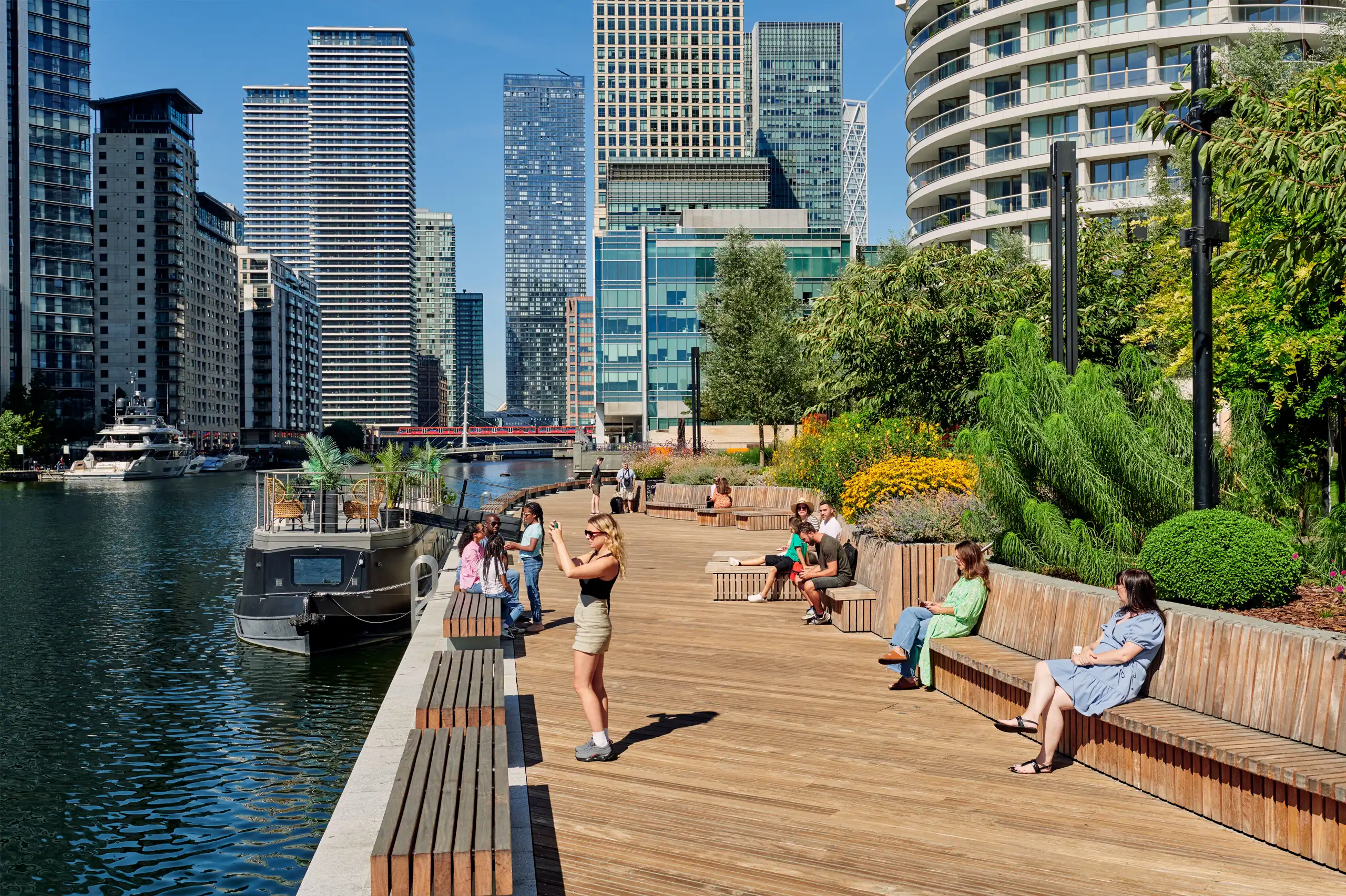 Understanding office work-life balance: a Canary Wharf perspective
Understanding office work-life balance: a Canary Wharf perspective
Our perspective at Canary Wharf is that work-life balance is about giving every person who operates in, around, on or visiting the estate the opportunity to maximise every experience. We see work-life balance as giving people autonomy over their day, making life’s necessities as easy as possible, maximising the positives of work, optimising interactions, and creating an environment in which every experience is a positive one.
A big part of that is providing the spaces in which people have choices over when, how and where they work. That stretches from ensuring there are cafes, restaurants, parks and open spaces to spend time in, as well as creating a variety of options that give people the chance to work in open plan spaces, collaborative areas, focused areas and more, to suit their needs at any given time, and create office work-life balance.
We also ensure security and easy transport links across the estate, so people can work in the hours that suit them whilst feeling safe and secure at the same time.
Discover work-life balance in Canary Wharf
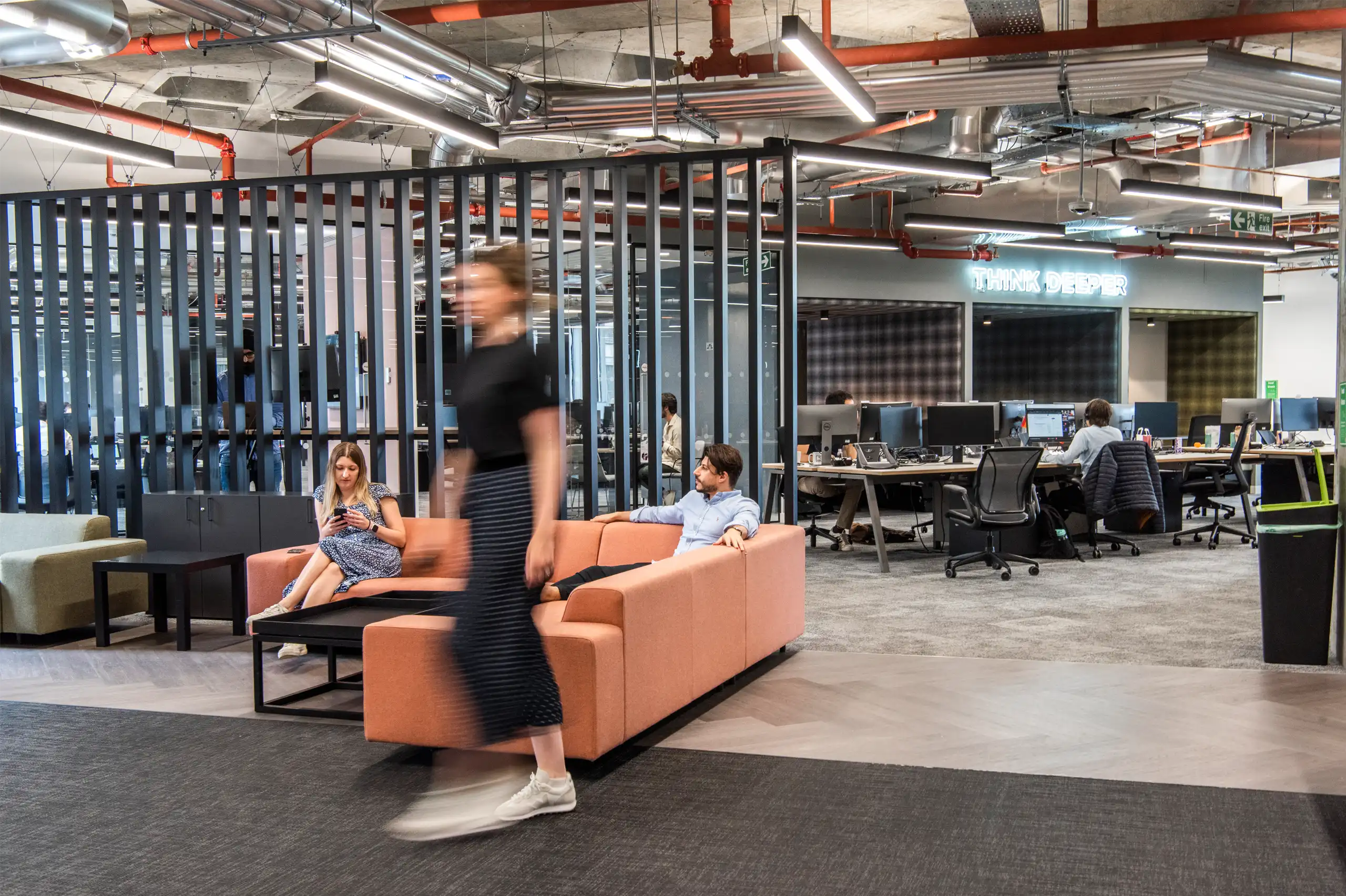 The importance of work-life balance in London offices
The importance of work-life balance in London offices
We live in a world where we are much more aware of the link between physical and mental health, as well as the correlation between our wellbeing and our workplace productivity and capabilities. As a result, we’re more aware of the importance of work-life balance.
This is an environment in which it is difficult to find, let alone retain, top talent in the workplace and the recruitment cost of having to replace valuable members of staff is extremely high. Aside from the moral imperative of looking after the people we work with, as peers and employers, it’s also a commercial imperative to contribute towards the long-term health and happiness of those within our teams.
A reported survey by HR managers, Reward Gateway found that four out of five workers said burnout at work had impacted their health, as the rate of mental health issues and burnout rises. However, the answer is not simply about working from home. In fact, feelings of isolation amongst younger employees who often live alone and came to the workplace during the pandemic, also contributes to a lack of wellbeing. Research from the London Heritage Quarter shows that 61% of young people report going for hours without talking to anyone when working from home, continuing that 54% of GenZ workers admit to feeling lonely compared to 38% of older colleagues.
Couple that knowledge with the increasing length of our working lives, (the UK state pension age is due to rise to 67 between 2026 and 2028), and we no longer live in a culture where it’s sensible or prudent to live to work or even to work to live. Instead, we need to foster working lives that are an integrated, sustainable and enjoyable part of our lives as a whole.
The benefit for employers will be a passionate, driven, healthy and long-lasting, highly engaged workforce, while the benefit for employees is better general wellbeing and more fulfilling careers that marry with the other aspects of their lives that they want to nurture.
 How to achieve work-life balance?
How to achieve work-life balance?
How to achieve work-life balance or how to improve work-life balance is open to interpretation, but the basics hinge on creating harmony between our work and personal lives, and crucially, supporting the essential pillars of mental and physical wellbeing. These tend to include: access to nature, positive relationships, movement/exercise, good nutrition and getting enough rest/sleep. The Canary Wharf estate seeks to give people everything they need to achieve those elements by putting the infrastructure and culture in place for everyone to access them in a way that suits their wants and needs.
Plan in your leisure, social and fitness activities
A healthy body leads to a healthy mind, so the saying goes, and access to leisure and fitness experiences is an essential part of supporting a healthy workforce. Different people like to support mind, body and soul in different ways, and at Canary Wharf we invite people to explore different options depending on what suits and inspires them throughout the year. That might be a jog or a walk along the riverside boardwalk at Harbour Quay or in the 16.5 acres of parks and green space, heading to one of the gyms or fitness experiences (Sweat by BXR or Barry’s, for example), sports such as padel tennis at Padium, or seasonal activities such as open water swimming at Middle Dock in the summer.
Work where you work best
How we work is also an essential part of achieving a healthy work/life balance, whether that’s having easy access to the office at a time that suits you (Canary Wharf has convenient transport links by boat, road and rail), as well as different working environments to suit different preferences and tasks. For example, we have a range of offices and leasing options available, from flexible, open plan spaces at L39, to dedicated offices. Within these, there are private workspaces, shared areas, booths for phone calls, lounge seating, formal desk seating and more – all designed to suit different wants, needs, tasks and preferences, and allowing people to move about throughout the day. That flexibility is known to be an essential contributor to work-life balance.
Unplug at the end of the day
Being able to step away from the working environment and into downtime after working hours or on your lunch break is also an essential part of work-life balance. Without having to travel to the other side of London, Canary Wharf makes it easy to experience valuable downtime with friends and colleagues with networking and social occasions from Level39 events to coffees with co-workers and dinners with friends at more than 300 nearby cafés, bars and restaurants.
Take a holiday
Sometimes a rest is really what we need to recover our energies and our ideas, and when we take time off work we want to minimise the hassle and maximise the quality time. Canary Wharf makes it easy to step away for a weekend or a longer break by having all the shops and facilities readily available to get what you need to jet away, whether you’re going skiing or escaping to the sunshine. It’s also got exceptional transport links so you can easily head cross country on the train or to the airport in no time at all. For example, there’s a direct service from Canary Wharf to Heathrow in 45-minutes or London City Airport in 11-minutes via Canning Town with the Jubilee line. For those seeking a unique experience, take the Thames Clipper Boat to any one of 24 piers along the Thames between Barking Riverside Pier and Putney Pier.
Discover Canary Wharf’s office spaces and workplace community
Go to top

Download the App
Download the Canary Wharf App today and join our online community here at Canary Wharf and access the latest offers and promotions, events and news.

Wharf Connect
We’re thrilled to introduce Wharf Connect – a FREE membership community tailored for early career professionals based in the Canary Wharf estate.
